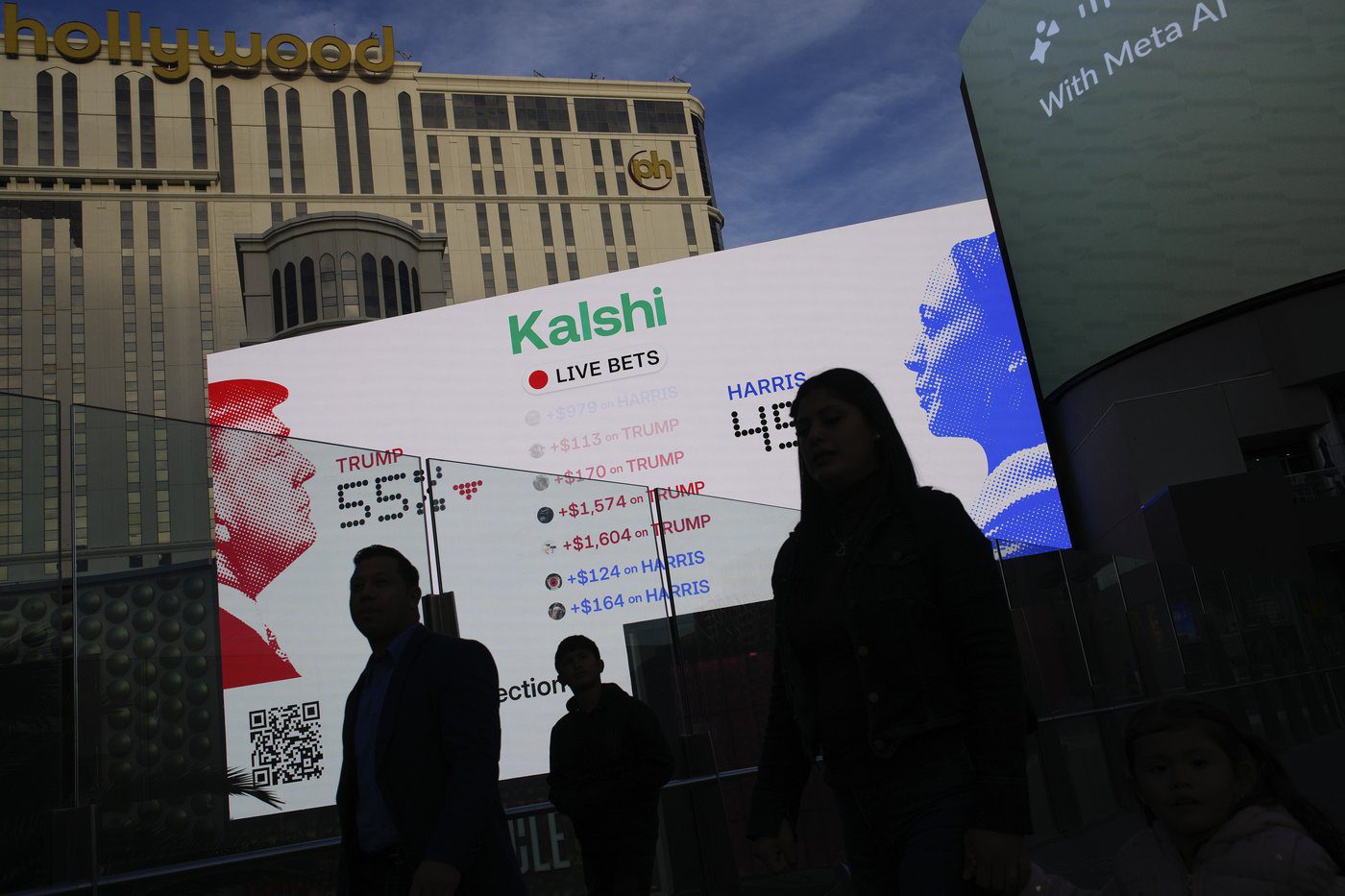LAS VEGAS (AP) — It’s been more than three decades since Nevada voters overwhelmingly approved a law allowing abortions until 24 weeks of pregnancy. Now they must decide if they want to make it a constitutional right.
Nevada is one of nine states where abortion rights are on the ballot, as supporters in the state and elsewhere try to strengthen abortion access after the U.S. Supreme Court overturned Roe v. Wade, the landmark decision that made abortion legal nationwide for 50 years.
It’s a key issue that could drive voters to the polls in Nevada, a crucial presidential battleground, even if abortion access has been protected by state law since 1990.
Here’s a closer look at the key ballot measures in Nevada:
Abortion rights
The 2024 election is only the first test of the measure seeking to enshrine the right to an abortion until the fetus can survive outside the womb, known as “fetal viability” which doctors say is after 21 weeks, with exceptions to save the mother’s life or protect her health. Voters would again have to approve it in 2026 in order to amend the state constitution.
It wouldn’t expand current abortion access in the state, but supporters and organizers of the initiative say it adds an extra layer of protection. State laws in Nevada are more vulnerable to change — the current 1990 law could be reversed by another voter referendum — but proposed changes to the state constitution have to pass in two consecutive elections.
Las Vegas resident Laura Campbell, 36, said she supports the initiative to strengthen Nevada’s abortion access. Without it, Campbell said she isn’t sure she would be alive today.
At 27 weeks, she said she learned that her pregnancy was nonviable, meaning the fetus couldn’t survive outside her womb. Her doctor took her hand and promised to take care of her.
“I was able to come out of that healthy and able to get pregnant again,” Campbell said. A year later, she gave birth to her daughter, now 3. “I could have been a tragic story.”
Opponents say the proposed amendment goes too far because it doesn’t clearly define “fetal viability.”
“It opens up a huge can of worms,” Davida Rochelle, 68, said.
Anti-abortion group Nevada Right to Life also said in a recent ad that the initiative is “deceptively worded” because it doesn’t make clear that abortion is already legal in the state.
Voting process
Nevada voters rejected a measure to open up primary elections and implement ranked choice voting in general elections, fundamentally changing elections in a key swing state.
The measure failed Tuesday.
Nonpartisan voters outnumber registered Democrats and Republicans in Nevada, while 42% of voters do not belong to one of the major parties. Supporters of the measure said opening up primaries would give a voice to more than 1 million registered voters in the state who don’t have a say in the nomination of major-party candidates for Congressional races and statewide office.
Starting in 2026, Nevada will hold open primary races for Congress, statewide office and the state legislature. The changes won’t affect presidential primaries and races for elected office at the local level.
Under the new system, the top five primary candidates, regardless of their political affiliation, will advance to the general election, in which voters rank by preference up to five candidates. The first candidate to receive more than 50% of the vote would be declared the winner.
If none of the candidates immediately win the majority, the candidate with the fewest votes is eliminated, and their votes would then be redistributed to the voter’s next highest ranked candidate. The process would repeat until a winner is declared.
The citizen-led initiative faced opposition from both Republican and Democratic party leaders who said the measure was too broad and that ranked choice voting was too confusing.
Voters also gave a nod of approval to a Republican-led initiative that would require voters to show photo identification at the polls. Voters must again pass the measure in 2026 before the requirement can be added to the state constitution.
Forced labor removed from law
Nevada voters rejected slavery or indentured servitude as a criminal punishment, which was still on the books in the state constitution.
The measure passed Tuesday.
Supporters of the initiative said it was a step in the right direction for civil rights. The measure aims to protect incarcerated people from being forced to work under the threat of punishment.
Nevada incarcerates about 10,000 people. All prisoners in the state are required to work or be in vocational training for 40 hours each week, unless they have a medical exemption. Some of them make as little as 35 cents hourly.
Nevada joins several other states — Colorado, Alabama and Tennessee — that have in recent years done away with exceptions for slavery and involuntary servitude, though the changes were not immediate.
In Colorado — the first state to get rid of an exception for slavery from its constitution in 2018 — incarcerated people alleged in a 2022 lawsuit against the corrections department that they were still forced to work.
“The momentum we’ve built in Nevada, coupled with our achievements in seven other states, strengthens our resolve to continue this work nationwide,” Jamilia Land, co-founder of the Abolish Slavery National Network, which advocated for the Colorado measure, said in a statement. “We are unwavering in our commitment to remove involuntary servitude from every state constitution.”
—
Associated Press reporter Sophie Austin contributed to this report.
Rio Yamat, The Associated Press





